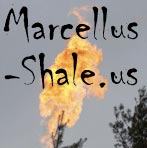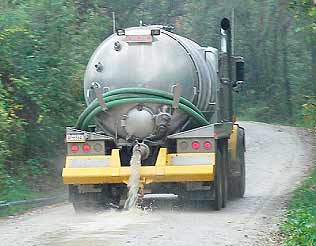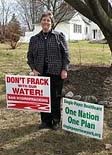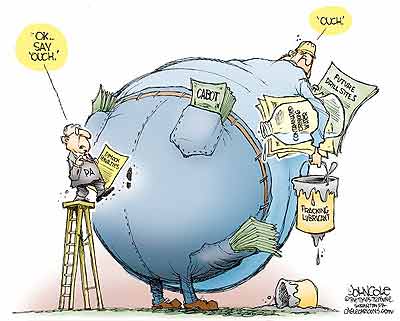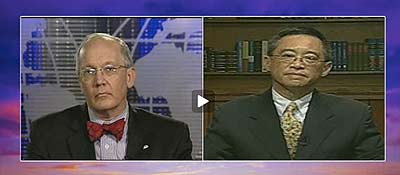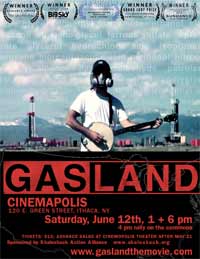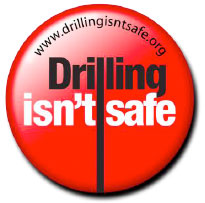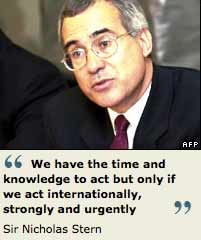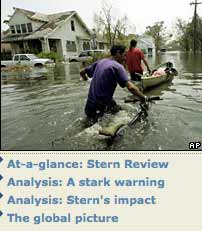Biblio
According to the Environmental Working Group, a research and advocacy group based in Washington, drilling companies are side-stepping a permitting requirement for the use of diesel fuel in their fracturing fluids by using similar petroleum distillates that contain the same toxins as diesel, but require no permitting.
The report also cites evidence that drilling companies continue to inject diesel fuel underground without the proper permits.
Includes public comments.
Frac Trucks... some call them soup trucks, kettle trucks or frack trucks. Some of these tanker trailers are used to haul frac sand or cement for gas well casings. Whatever the name or use of these various trucks, they usually catch your attention when they are parked roadside or travelling down the highway as oversize loads.
All kinds of weird plumbing, pipes and gauges not seen in everyday life. Some carry containers of frac fluids or other devices that you never saw anything quite like before. Equipment used for installing and fracking Marcellus Shale gas wells.
Natural gas companies are wasting no time before attempting to sway a Fort Worth air quality study in their favor.
As a City Hall-named committee charged with designing the study began its discussions Wednesday, representatives of Chesapeake Energy, Devon Energy and XTO Energy insisted that any findings of contaminated air around natural gas facilities be examined "in context."
That's how the gas industry's PR machine tries to deflect any blame for poisonous air. The argument goes like this:
Well, yes, benzene causes cancer. And yes, benzene is one of the hazardous chemicals that can be brought to the surface and escape into the air as a result of natural gas drilling and related activities. But measurable levels of benzene can also come from many other sources, like the gasoline station down the street or the road paving project two blocks away. You can't blame it all on us.
That's good spin, just enough truth in it to throw the gullible off guard.
"Read and weep. Here is part of the new brochure: Endless Mountains Visitors Guide. Imagine trying to make a gas well a wonderful and fascinating thing to visit in Pennsylvania. It is almost like trying to make visiting a ward in a VA hospital something to look forward to.
Come see the death and destruction here in Pennsylvania. It will be fascinating. Watch the gas drillers as they work diligently to ruin everything we treasure here in Pennsylvania. Read on.........(from the Endless Mountains Visitors Guide)"
Cartoon by John Cole, The (Scranton) Times-TribuneA boom in natural-gas drilling in Pennsylvania could bring millions of barrels of salty toxic waste into Ohio.
That's a warning Ohio's oil and gas industry and environmentalists are sounding as hundreds of deep wells are drilled into Marcellus shale.
Tom Stewart, vice president of the Ohio Oil and Gas Association, and Jack Shaner, lobbyist for the Ohio Environmental Council, predict that Pennsylvania companies will soon truck their well wastes to Ohio, where brine is injected into 159 privately owned, state-regulated disposal wells. It is illegal to dump brine in Ohio streams and rivers.
Stewart said, "I have a big problem that that (well) capacity isn't overloaded by out-of-state water."
Shaner said, "We're looking at a wave of toxic brine headed into this state."
That's why both support a bill in the Ohio legislature that would create a 20-cent-per-barrel disposal tax on brine shipped in from other states. That's four times as much as a proposed 5-cent-per-barrel tax on Ohio brine.
"Walter, do you believe natural gas can be extracted in an environmentally safe manner?
WALTER HANG: Not under the current regulatory scheme. If they do things better, if they require financial surety, we will find out. But under the existing regs, it cannot be done safely. The data proved that beyond a shadow of a doubt."
Richard Haut is from Houston Advanced Research Center and is an expert on hydrofracking. Walter Hang is President of Toxics Targeting, and provides data to engineers, municipalities and homeowners on possibly contaminated properties.
See: Mixplex articles on Global Warming Experts and Climate Science Watch to read more about the compelling reasons to watchdog government regulation at best and challenge those who claim that peer-reviewed scientific analysis will weaken business development and national security.
The opportunities to have both an educated public and the scientific community comment on the many environmental impact statements required for the mining and extractiive industries is a benefit to both the public and industry according to this report: Pew Environment Group (PEG) Factsheet: Industry Opposition to Government Regulation (PDF), October 14, 2010. (Neil Zusman, 2010-08-28).
See also: Environmental Integrity Project (EIP)
EIP combines research, reporting, and media outreach to spotlight illegal pollution, expose political intimidation of enforcement staff, and encourage federal and state agencies to take enforcement action to stop these practices.
See also: Nora Eisenberg. Onshore Drilling Disasters Waiting to Happen: An Interview With 'Gasland' Director Josh Fox | The Nation
Eisenberg: In your sleuthing, what was the most surprising discovery you made?
Josh Fox: Most baffling to me was how much the gas industry was able to get away with—like [insisting] that drilling is safe. Most people when they sign the lease don't realize that what they're in for is a complete industrialization of their property and an enormous problem with their air and water. The gas industry is somehow able to move into an area and say that everything is going to be just fine, you're just going to make a lot of money.
See: Gasland Trailer
GasLand (2010) Directed by Josh Fox. Winner of Special Jury Prize - Best US Documentary Feature - Sundance 2010. Screening at Cannes 2010. Nominated for 2011 Academy Award - Best Documentary Feature.
It is happening all across America and now in Europe and Africa as well - rural landowners wake up one day to find a lucrative offer from a multinational energy conglomerate wanting to lease their property. The Reason? In America, the company hopes to tap into a huge natural gas reservoir dubbed the Saudi Arabia of natural gas. Halliburton developed a way to get the gas out of the ground—a hydraulic drilling process called fracking—and suddenly America finds itself on the precipice of becoming an energy superpower.
But what comes out of the ground with that natural gas? How does it affect our air and drinking water? GASLAND is a powerful personal documentary that confronts these questions with spirit, strength, and a sense of humor. When filmmaker Josh Fox receives his cash offer in the mail, he travels across 32 states to meet other rural residents on the front lines of fracking. He discovers toxic streams, ruined aquifers, dying livestock, brutal illnesses, and kitchen sinks that burst into flame. He learns that all water is connected and perhaps some things are more valuable than money.
See PBS interview with filmmaker Josh Fox.
See: Nora Eisenberg. Onshore Drilling Disasters Waiting to Happen: An Interview With 'Gasland' Director Josh Fox | The Nation
See: Drilling Isn't Safe.
Re-Edit by liltrax. July 9, 2010.
Will the boom in natural gas drilling contaminate America's water supply?
This week, NOW (PBS) talks with filmmaker Josh Fox about "Gasland", his Sundance award-winning documentary on the surprising consequences of natural gas drilling. Fox's film—inspired when the gas company came to his hometown—alleges chronic illness, animal-killing toxic waste, disastrous explosions, and regulatory missteps.
See: Backlash: The Smear Campaign. Immediately upon the film's release, Energy In Depth issued a paper claiming to "debunk" the film's documentary evidence.
See: Mike Hale. The New York Times. June 21, 2010. The Costs of Natural Gas, Including Flaming Water.
Dave Shiflett. Bloomberg.com. June 21, 2010. Cook a Hamburger and Blow Up Your Polluted Fracking Town.
See: DEC Fracks NYC & Josh Fox of Water Under Attack's Responds
See also: Gasland Trailer 2010.
See: Drilling Isn't Safe.
Gasland is going a long way in spreading public awareness about gas drilling and the risks it poses on human and environmental health. Nationwide response to the film has been overwhelmingly positive. The Oil and Gas Industry's response: not so enthusiastic.
"Energy-In-Depth" is a PR Firm/Lobbying Group funded by the American Petroleum Institute. They are putting a misleading spin on information in Gasland to soothe and silence public curiosity about gas drilling.
The work of Energy-In-Depth lacks journalistic credibility and educated opinion. It's nothing short of an attack on truth. For public interest, we’ve prepared a response to their self-serving claims on gas drilling. Click here to learn more and pass along to friends.
See "Let's Talk About Cleavage", Energy In Depth. August 11, 2010.
Take Action. Adapt the film screening party to ongoing community benefits and information sharing. Download: Gasland HouseParty Guide (PDF) 2010-06-21
See: Mike Hale. NYT Review, "The Costs of Natural Gas, Including Flaming Water".
See: PBS Interview with Josh Fox, March 26, 2010.
See: the Water Portal page on SourceWatch with an excellent summary of the Gasland phenomenon. Robert Koehler of Variety referred to the film as “one of the most effective and expressive environmental films of recent years… "GasLand" may become to the dangers of natural gas drilling what Rachel Carson's "Silent Spring" was to DDT.”
See: Josh Fox Interview with Jon Stewart on The Daily Show.
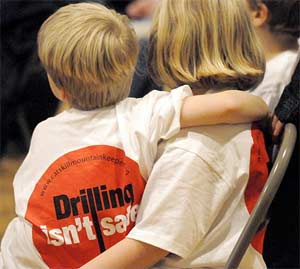
Rhiza Labs | Online Mapping Software for exploring, visualizing, and sharing crowdsourced data on the web.
June 30, 2010
Geo Animation: Marcellus Shale Permits in PA Over Time
by Josh Knauer
Here at Rhiza Labs, we’re really excited to have a whole bunch of new public projects launching with our clients. These clients are pioneers who are exploring new ways to encourage communities of interest to aggregate data and share it publicly, while also providing these communities with incredibly powerful data analysis and visualization tools. One of the latest projects to launch, FracTracker.org, involves many dozens of community organizations that want to tract the impacts of Marcellus Shale gas wells in their communities.
I wanted to see how widespread this type of gas well drilling practice was, so I took the Marcellus Shale gas well permit data from the PA Dept of Environmental Protection and created a quick snapshot of the data, and then just clicked on the Action button in the upper right corner of the snapshot page and chose the options “Download as –> KML” to bring it into Google Earth. I then just hit “play” on the time slider within Google Earth.
The world’s leading scientists agree that the planet is warming and that human activities—especially the burning of fossil fuels and the clearing of forests—are a big part of the cause.
See: Pew Environment Group: Global Warming
In a 2007 report, the Intergovernmental Panel on Climate Change, the international group of scientists charged with reviewing, validating and summarizing the latest research concluded that the warming of the climate system is unequivocal. They stated that it is 90 percent certain that human-generated greenhouse gases account for most of the warming in the past 50 years.
Many published scientific reports have documented the actual observed impacts of a warming planet—including dramatic melting of the Arctic ice cap, shifting wildlife habitats, increased evidence of wildfires, heat waves and more intense storms. Americans are now seeing the impacts of global warming in their backyards. The warming trend poses serious risks to the economy and the environment.
Pew uses two approaches to address climate change: science and policy analysis and advocacy campaigns.
The Pew Center on Global Climate Change is a leading policy and research institute. It advances debate through analysis, public education and a cooperative approach with business. The center launched in 1998.
The Pew Campaign on Global Warming is aimed at adoption of a national policy to reduce emissions throughout the economy, and the Pew Campaign for Fuel Efficiency seeks more stringent fuel efficiency standards for the nation’s cars and trucks.
See: Global Warming Frequently Asked Questions | National Oceanic and Atmospheric Administration (NOAA)
See: Pew Environment Group (PEG) Factsheet: Industry Opposition to Government Regulation (PDF), October 14, 2010.
According to Sourcewatch, The Heartland Institute 2009 International Conference on Climate Change, held March 8-10th in New York at the Marriott New York Marquis Times Square Hotel, brought together scientists, economists, legal experts, and other climate specialists to "confront the issue of global warming."
These specialists, all climate change skeptics, aim to call attention "to new research that contradicts claims that Earth’s moderate warming during the 20th Century primarily was man-made and has reached crisis proportions."
See: The 2009 International Conference on Climate Change.
The conference was organised and "sponsored" by the Heartland Institute, a U.S. think tank that in preceding years received substantial funding from Exxon for its work downplaying the significance of global warming.
Please note that information taken from Sourcewatch should be verified using other, more reliable sources. It is a good place to start research, but because anyone can edit Sourcewatch, we do not recommend using it in research papers or to obtain highly reliable information.
See: BBC News. Oct. 31, 2006. "Climate change fight 'can't wait'"
The world cannot afford to wait before tackling climate change, the UK prime minister has warned.
A report by economist Sir Nicholas Stern suggests that global warming could shrink the global economy by 20%.
But taking action now would cost just 1% of global gross domestic product, the 700-page study says. (Executive Summary, PDF, 27 pp.)
See: Alan I. Leshner. Dec. 9, 2009. Washington Post. "Don't let the climate doubters fool you."
See: The American Association for the Advancement of Science (AAAS) Reaffirms Statements on Climate Change and Integrity. 12/04/09.
See: Commentary: Dr. Michael J. Economides, editor-in-chief of the Energy Tribune, says environmentalists wrong on hydrofracking. Economides was short-listed for the EPA 2010 Hydraulic Fracturing Study.
Michael J. Economides is the editor of The Energy Tribune, and Professor of Chemical and Biomolecular Engineering at the University of Houston.
See: Ann Alexander. Oct. 22, 2010. NRDC Switchboard. "Climate change denial from the Book of Hesitations".
David Easterling, NOAA Satellite and Information Services: National Environmental Satellite, Data, and Information Service. (2008). One of the most vigorously debated topics on Earth is the issue of climate change, and the National Environmental Satellite, Data, and Information Service (NESDIS) data centers are central to answering some of the most pressing global change questions that remain unresolved. The National Climatic Data Center contains the instrumental and paleoclimatic records that can precisely define the nature of climatic fluctuations at time scales of a century and longer.
Internationally, the Intergovernmental Panel on Climate Change (IPCC), under the auspices of the United Nations (UN), World Meteorological Organization (WMO), and the United Nations Environment Program (UNEP), is the most senior and authoritative body providing scientific advice to global policy makers. The IPCC met in full session in 1990, 1995, 2001 and in 2007. They address issues such as the buildup of greenhouse gases, evidence, attribution, and prediction of climate change, impacts of climate change, and policy options.
See: Global Warming | The Pew Center on Global Climate Change.
See: Tales from the Ice: Explaining Rapid Climate Change
See: Exxon Confronts Nuns, Calpers Over Global Warming Plans, Boskin
See: Climate Zombies Now Run The House
See: Beware The Green Dragon! | Right Wing Watch
See: Sixty Lame Minutes
In a move that may derail a comprehensive climate change and energy bill in the Senate, one of the measure’s central architects, Senator Lindsey Graham, has issued an angry protest over what he says are Democratic plans to give priority to a debate over immigration policy.
Mr. Graham, Republican of South Carolina, said in a sharply worded letter on Saturday that he would no longer participate in negotiations on the energy bill, throwing its already cloudy prospects deeper into doubt. He had been working for months with Senators John Kerry, Democrat of Massachusetts, and Joseph I. Lieberman, independent of Connecticut, on the a legislation, which they were scheduled to announce with considerable fanfare on Monday morning. That announcement has been indefinitely postponed.
In his letter to his two colleagues, Mr. Graham said that he was troubled by reports that the Senate Democratic leader, Harry Reid of Nevada, and the White House were planning to take up an immigration measure before the energy bill. Mr. Graham has worked with Democrats in the past on immigration matters and was expected to be an important bridge to Republicans on that issue, as well as on energy.
Brendan Smialowski for The New York Times
Senator Lindsey Graham, right, with Senators John Kerry and Joseph I. Lieberman at a news conference in November about proposed energy legislation. Mr. Graham sent his two colleagues a letter Saturday saying he would no longer participate in negotiations on the bill.
This is an excellent background on the Marcellus Shale Gas Rush. Website is sponsored by Shell which may signify a pro-industry editorialization. Nevertheless, the photographs and production are impressive. Shell's message here:
"Let's Build a Better Energy Future. Let's Go. See how we're helping to secure energy for the next generation."
See: Ed Pilkington. "Shell pays out $15.5m over Saro-Wiwa killing." The Guardian. June 9, 2009.
See: Jad Mouawad. "Shell to Pay $15.5 Million to Settle Nigerian Case." NYT. June 8, 2009.
Forcing Gas Out of Rock With Water
The populous mid-Atlantic market pays a relatively higher price than the South for energy, at the same time that exploration and finding costs are dramatically lower in the Marcellus than in the Barnett and the other shales around the United States.
“It’s very repeatable,” says Range spokesman Matt Pitzarella. “Every well in Washington County is either good or great.”
See: Candice O'Grady. "Newsweek Greenwashes the Oil Lobby for Real." Feb. 2010.







